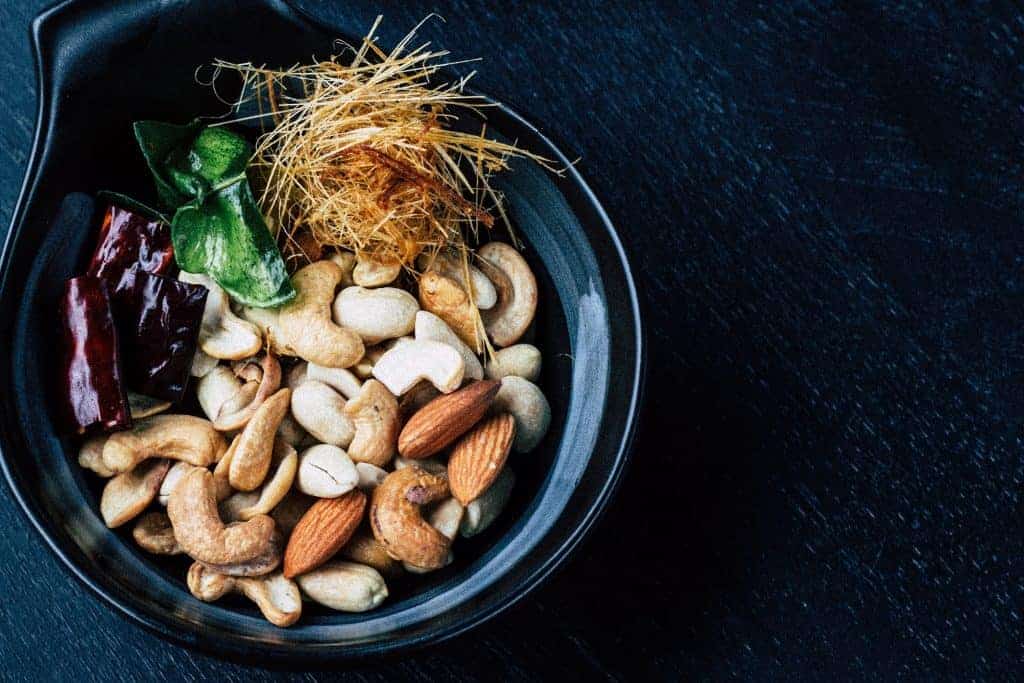Geschatte leestijd: 2 minuten
Nuts are often associated with superfoods and healthy nutrition. In this article, we want to clarify the potential health benefits for athletes actively engaged in fitness. There are different types of nuts. Do all nuts have the same healthy properties?
Are Nuts Healthy?
To answer this question, it’s important to first look at the nutritional values of nuts. Nuts consist of healthy unsaturated fats, proteins, various B vitamins, calcium, and iron. Getting our bodies in the right shape has everything to do with the right training and the right nutrition. Nutrition can be divided into different macronutrients (proteins, carbohydrates, and fats). Proteins and fats are essential for various processes in the body. Proteins are like the building blocks, and fats can be seen as the cement that keeps everything working well and also provides energy. Carbohydrates provide energy.
When we look at different types of nuts, we see a commonality, namely that nuts all contain a lot of fats. Fats play an essential role in our hormone balance. Sufficient healthy fats ensure that the body can optimally produce muscle-building hormones. Think of testosterone (the male hormone) and growth hormone, among others. Without sufficient production of these hormones, achieving a muscular appearance becomes much more difficult.
Healthy Fats
As mentioned, nuts contain important fats that are crucial for various bodily functions. These fats consist of fatty acids, which we can divide into 3 groups:
- Saturated fatty acids
- Polyunsaturated fatty acids
- Monounsaturated fatty acids
The fatty acids linoleic acid and alpha-linolenic acid are the essential fatty acids, also known as EFAs. Our body cannot produce these fatty acids itself, so we need to obtain them through our diet.
Nuts contain unsaturated fats and omega-3 fats and relatively high calories, but in this case, the calories come from essential proteins and good polyunsaturated fatty acids. These are the so-called Omega fatty acids. Omega-3 and Omega-6 are essential among them.
Walnuts
Walnuts contain alpha-linolenic acid, which is an essential omega-3 fatty acid that our body cannot produce on its own. The role of Omega-3 is important in the production of hormone-like substances that in turn play an important role in fat metabolism. In addition to this role, walnuts have a cholesterol-lowering effect and strengthen our immune system.
Pecans
Pecans, like walnuts, are also very healthy and are full of Vitamin B1. This Vitamin B1 plays a major role in converting glucose into energy. In addition to this function, Vitamin B1 also plays a role in removing lactic acid from the muscles and helps promote digestion. Raw pecans retain the highest amount of Vitamin B1.
Almonds
Almonds are very rich in Vitamin E. Vitamin E is an antioxidant and is important when you do strength training because it protects cells from free radicals and increases resistance. Vitamin E plays a major role in the production of red blood cells and in the production of muscle tissue. In addition to Vitamin E, almonds are also full of magnesium, phosphorus, and Vitamin B2.
Hazelnuts
Finally, hazelnuts. Hazelnuts also contain unsaturated monounsaturated omega-6 fatty acids. In addition, they contain a lot of Vitamin E and folic acid. Like almonds, they contain arginine, which is an amino acid. The role of Arginine is important in the production of growth hormone and in the immune system.

